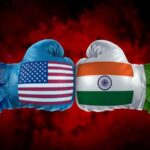India should recognise the ‘sensitivity’ of the issue, says Chinese Ministry of Foreign Affairs, and also defends China-Pakistan cooperation
The Chinese government has protested to India over Prime Minister Narendra Modi’s birthday greetings for Tibetan spiritual leader the Dalai Lama, and the presence of Ministers at the 90th birthday celebrations in Dharamshala, the Chinese Ministry of Foreign Affairs (MFA) said on Monday (July 7, 2025).
The statement was made in response to a question at the daily press briefing, asking for a response to Mr. Modi’s message on social media platform X, where he had praised the Dalai Lama, a Nobel Peace Prize laureate, as an “enduring symbol of love, compassion, patience and moral discipline”, as part of his birthday wishes.
While the Indian Ministry of External Affairs (MEA) did not confirm receiving Beijing’s protest, government sources pointed out that Indian Prime Ministers have a long-standing practice of wishing the Dalai Lama on his birthday, including on occasion over telephone calls.
“India needs to be fully cognizant of the sensitivity of issues related to Xizang, see clearly the anti-China and separatist nature of the 14th Dalai Lama, honour the commitments India has made to China on issues related to Xizang, act prudently, and stop using those issues to interfere in China’s internal affairs,” the Chinese MFA’s spokesperson Mao Ning told journalists, using the Chinese term ‘Xizang’ for Tibet or the Tibet Autonomous Region (TAR), which India uses. “China has protested to India regarding its actions,” Ms. Mao added, without sharing details on how the protest was delivered.
This is the second time in the last few days that China has objected to official greetings for the Dalai Lama, whose week-long birthday celebrations were marked in Dharamshala, which were attended by Indian Ministers, including Union Minority Affairs Minister Kiren Rijiju, the Chief Ministers of Arunachal Pradesh and Sikkim, and the Deputy Chief Minister of Himachal Pradesh.
On Thursday (July 3, 2025), Ms. Mao had reacted sharply to comments by Mr. Rijiju supporting the Dalai Lama’s exclusive right to decide on the succession of his line, a sensitive issue for Beijing, which believes the Dalai Lama’s successor must be approved by the Chinese government. The MEA had clarified subsequently that the Indian government has “no position” and would not “speak on matters concerning beliefs and practices of faith and religion”.
However, officials expressed surprise over Beijing’s latest salvo over birthday greetings for the Dalai Lama, as it has been a common practice for Mr. Modi to wish the Tibetan leader and to speak with him, and the PM has met him once since he took over office in 2014. Prior to that, the then Prime Minister Manmohan Singh had met the Dalai Lama twice, in 2004 and 2010, despite protests from Beijing at the time, and the late Congress PM met him a number of times after demitting office as well.
Beijing has for long accused the 14th Dalai Lama Tenzin Gyatso, who has lived in India since 1959, when he fled Lhasa under Chinese control, of being a “splittist”. The Dalai Lama has said he is only pursuing the “middle way” in favour of more autonomy and freedoms for the TAR, while New Delhi maintains he is an “honoured guest” and “spiritual leader” in India.
At the briefing in Beijing, the spokesperson also fielded questions over recent comments by the Deputy Chief of Army Staff Lt General Rahul R. Singh, where he had said China had supported Pakistan with defence hardware and tested them like a “live lab” during the four-day conflict and Operation Sindoor in May this year. “China and Pakistan are close neighbours enjoying traditional friendship. Defence and security cooperation is part of the normal cooperation between the two countries and does not target any third party,” Ms. Mao said, adding that China-India ties are at a “crucial stage of improvement and development”, and that China supports India and Pakistan in settling their differences through “dialogue and consultation”.
China protests PM Modi’s greetings, presence of Ministers at the Dalai Lama’s birthday celebrations
India should recognise the ‘sensitivity’ of the issue, says Chinese Ministry of Foreign Affairs, and also defends China-Pakistan cooperation
The Chinese government has protested to India over Prime Minister Narendra Modi’s birthday greetings for Tibetan spiritual leader the Dalai Lama, and the presence of Ministers at the 90th birthday celebrations in Dharamshala, the Chinese Ministry of Foreign Affairs (MFA) said on Monday (July 7, 2025).
The statement was made in response to a question at the daily press briefing, asking for a response to Mr. Modi’s message on social media platform X, where he had praised the Dalai Lama, a Nobel Peace Prize laureate, as an “enduring symbol of love, compassion, patience and moral discipline”, as part of his birthday wishes.
While the Indian Ministry of External Affairs (MEA) did not confirm receiving Beijing’s protest, government sources pointed out that Indian Prime Ministers have a long-standing practice of wishing the Dalai Lama on his birthday, including on occasion over telephone calls.
“India needs to be fully cognizant of the sensitivity of issues related to Xizang, see clearly the anti-China and separatist nature of the 14th Dalai Lama, honour the commitments India has made to China on issues related to Xizang, act prudently, and stop using those issues to interfere in China’s internal affairs,” the Chinese MFA’s spokesperson Mao Ning told journalists, using the Chinese term ‘Xizang’ for Tibet or the Tibet Autonomous Region (TAR), which India uses. “China has protested to India regarding its actions,” Ms. Mao added, without sharing details on how the protest was delivered.
This is the second time in the last few days that China has objected to official greetings for the Dalai Lama, whose week-long birthday celebrations were marked in Dharamshala, which were attended by Indian Ministers, including Union Minority Affairs Minister Kiren Rijiju, the Chief Ministers of Arunachal Pradesh and Sikkim, and the Deputy Chief Minister of Himachal Pradesh.
On Thursday (July 3, 2025), Ms. Mao had reacted sharply to comments by Mr. Rijiju supporting the Dalai Lama’s exclusive right to decide on the succession of his line, a sensitive issue for Beijing, which believes the Dalai Lama’s successor must be approved by the Chinese government. The MEA had clarified subsequently that the Indian government has “no position” and would not “speak on matters concerning beliefs and practices of faith and religion”.
However, officials expressed surprise over Beijing’s latest salvo over birthday greetings for the Dalai Lama, as it has been a common practice for Mr. Modi to wish the Tibetan leader and to speak with him, and the PM has met him once since he took over office in 2014. Prior to that, the then Prime Minister Manmohan Singh had met the Dalai Lama twice, in 2004 and 2010, despite protests from Beijing at the time, and the late Congress PM met him a number of times after demitting office as well.
Beijing has for long accused the 14th Dalai Lama Tenzin Gyatso, who has lived in India since 1959, when he fled Lhasa under Chinese control, of being a “splittist”. The Dalai Lama has said he is only pursuing the “middle way” in favour of more autonomy and freedoms for the TAR, while New Delhi maintains he is an “honoured guest” and “spiritual leader” in India.
At the briefing in Beijing, the spokesperson also fielded questions over recent comments by the Deputy Chief of Army Staff Lt General Rahul R. Singh, where he had said China had supported Pakistan with defence hardware and tested them like a “live lab” during the four-day conflict and Operation Sindoor in May this year. “China and Pakistan are close neighbours enjoying traditional friendship. Defence and security cooperation is part of the normal cooperation between the two countries and does not target any third party,” Ms. Mao said, adding that China-India ties are at a “crucial stage of improvement and development”, and that China supports India and Pakistan in settling their differences through “dialogue and consultation”.






NO COMMENT